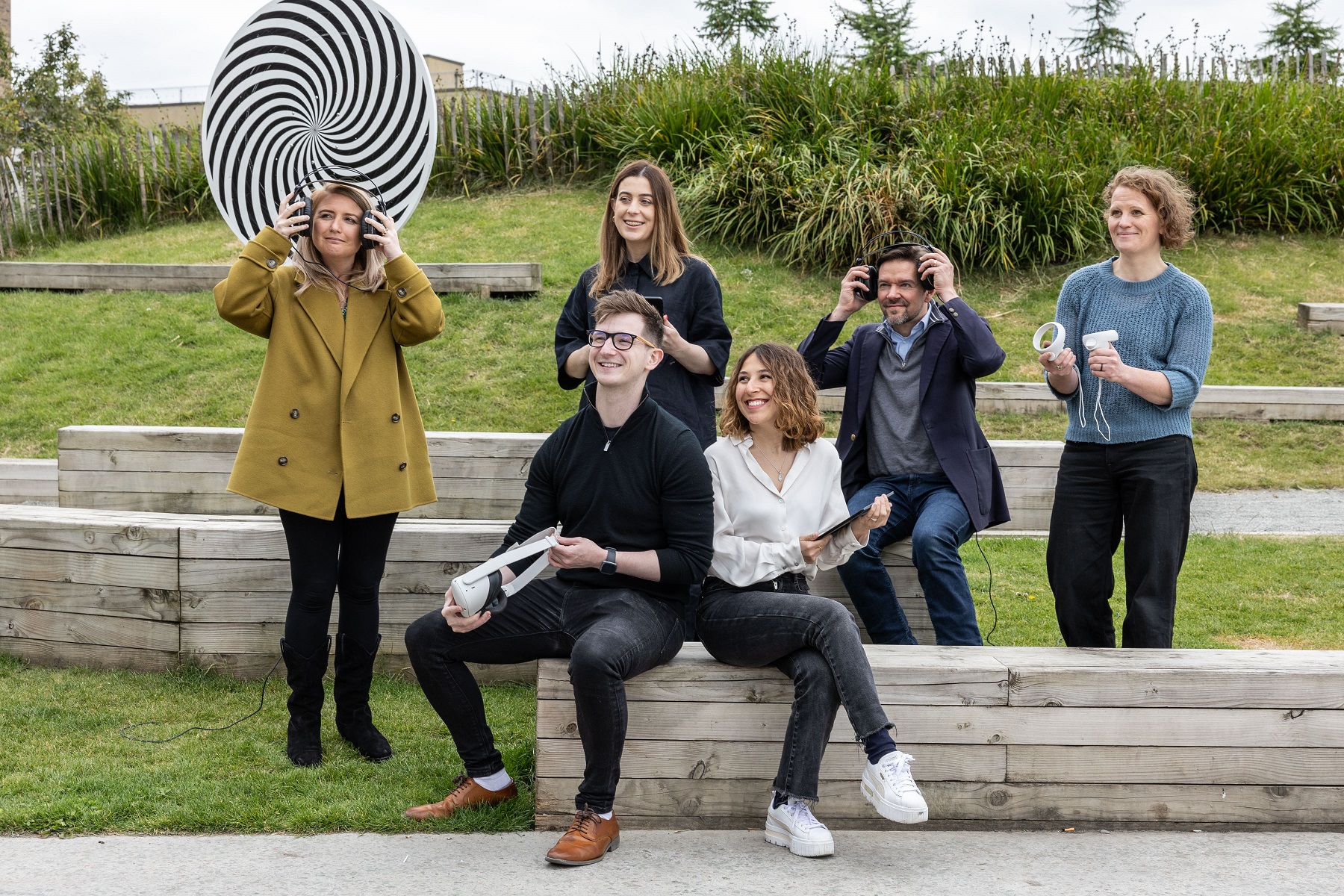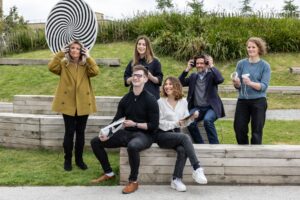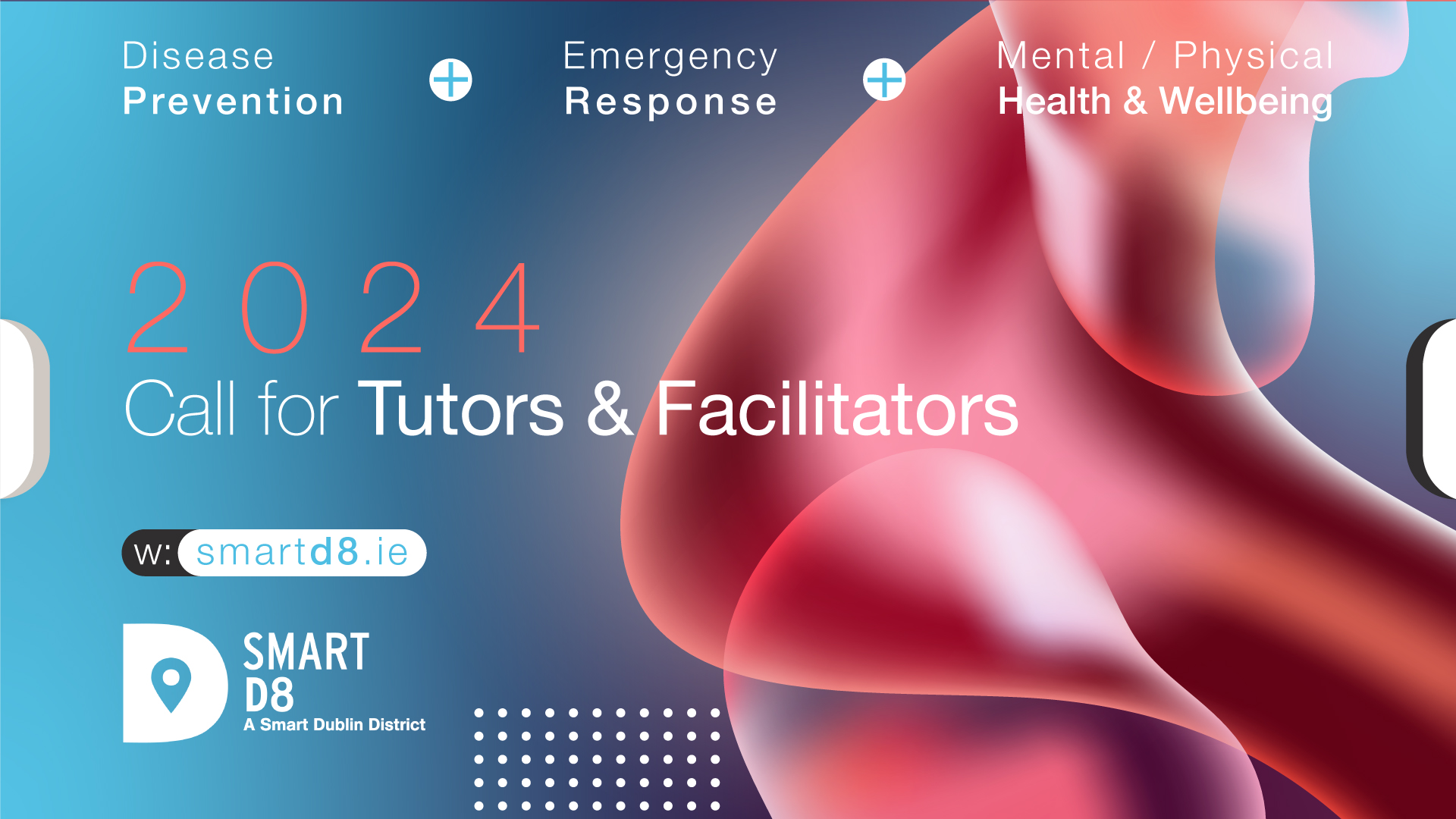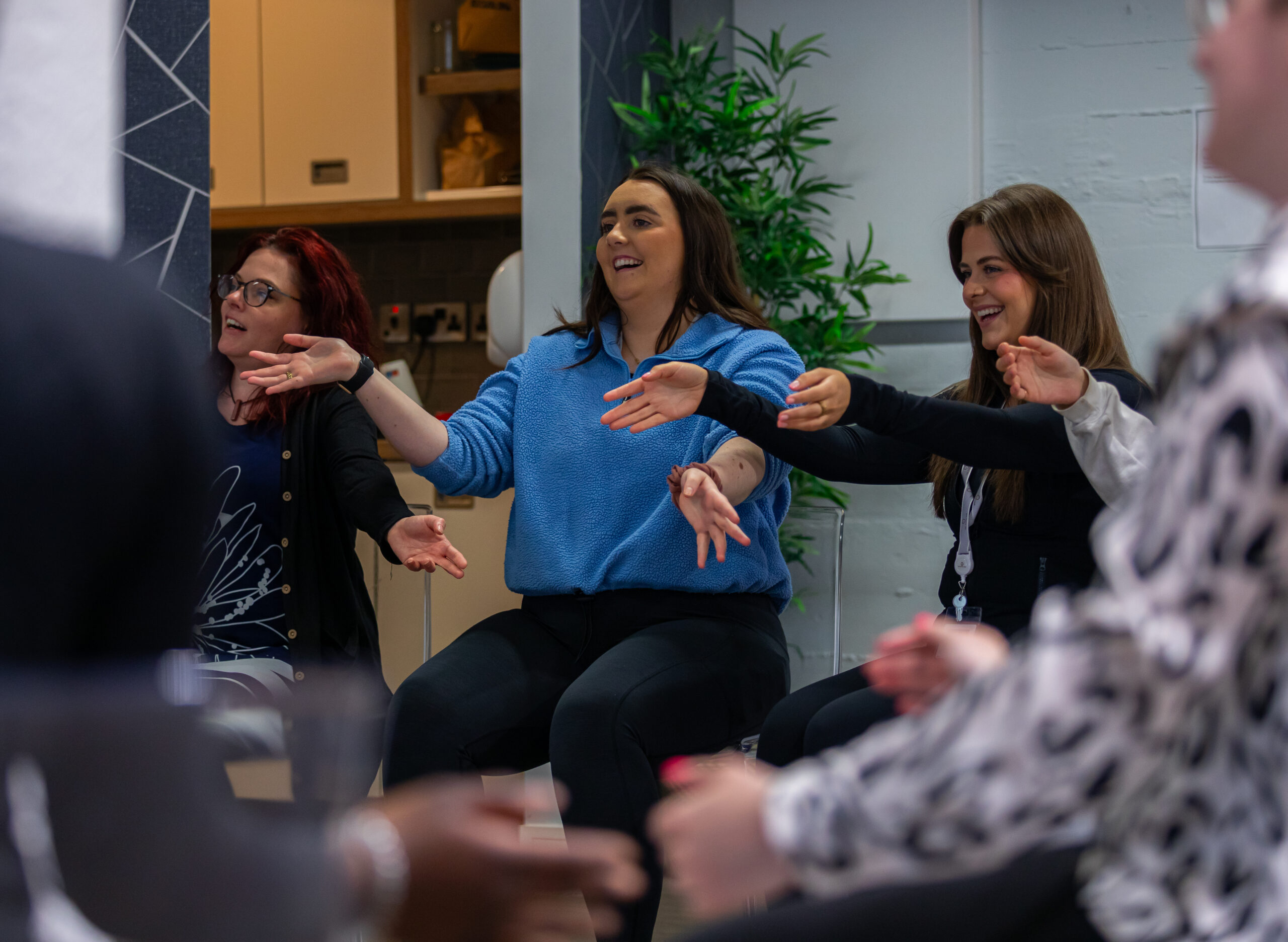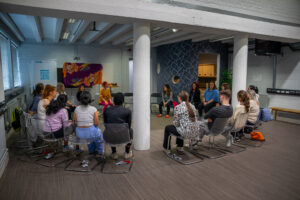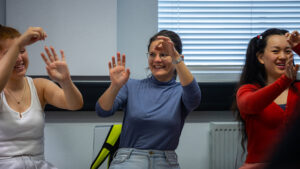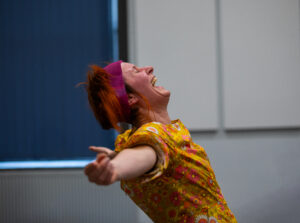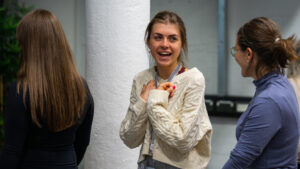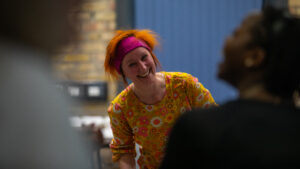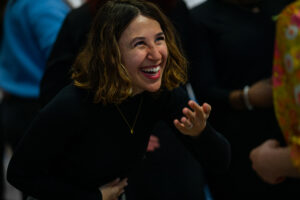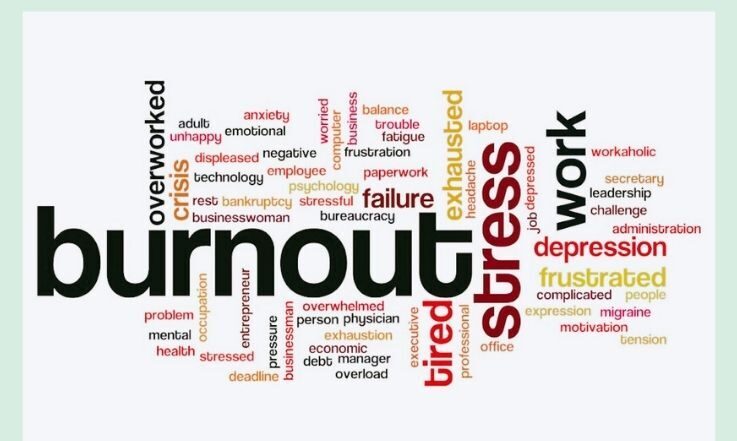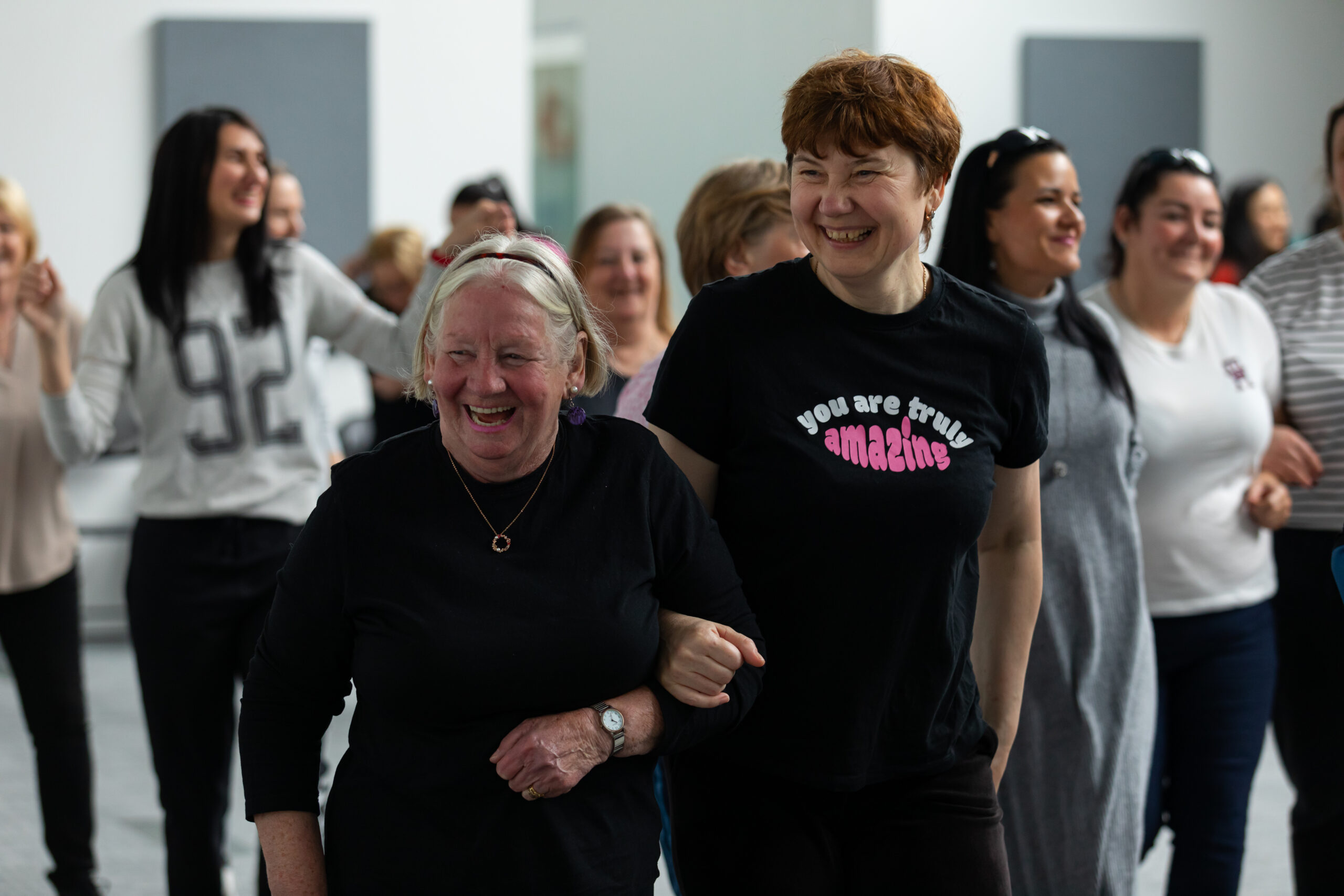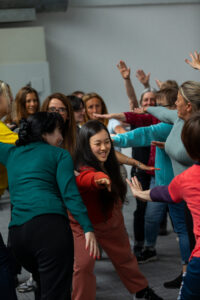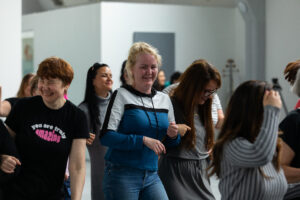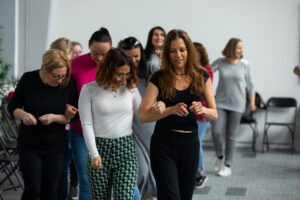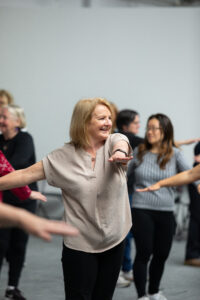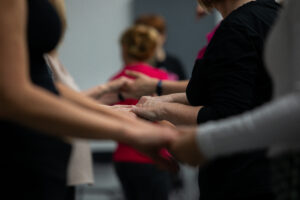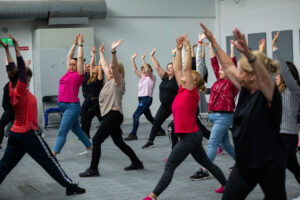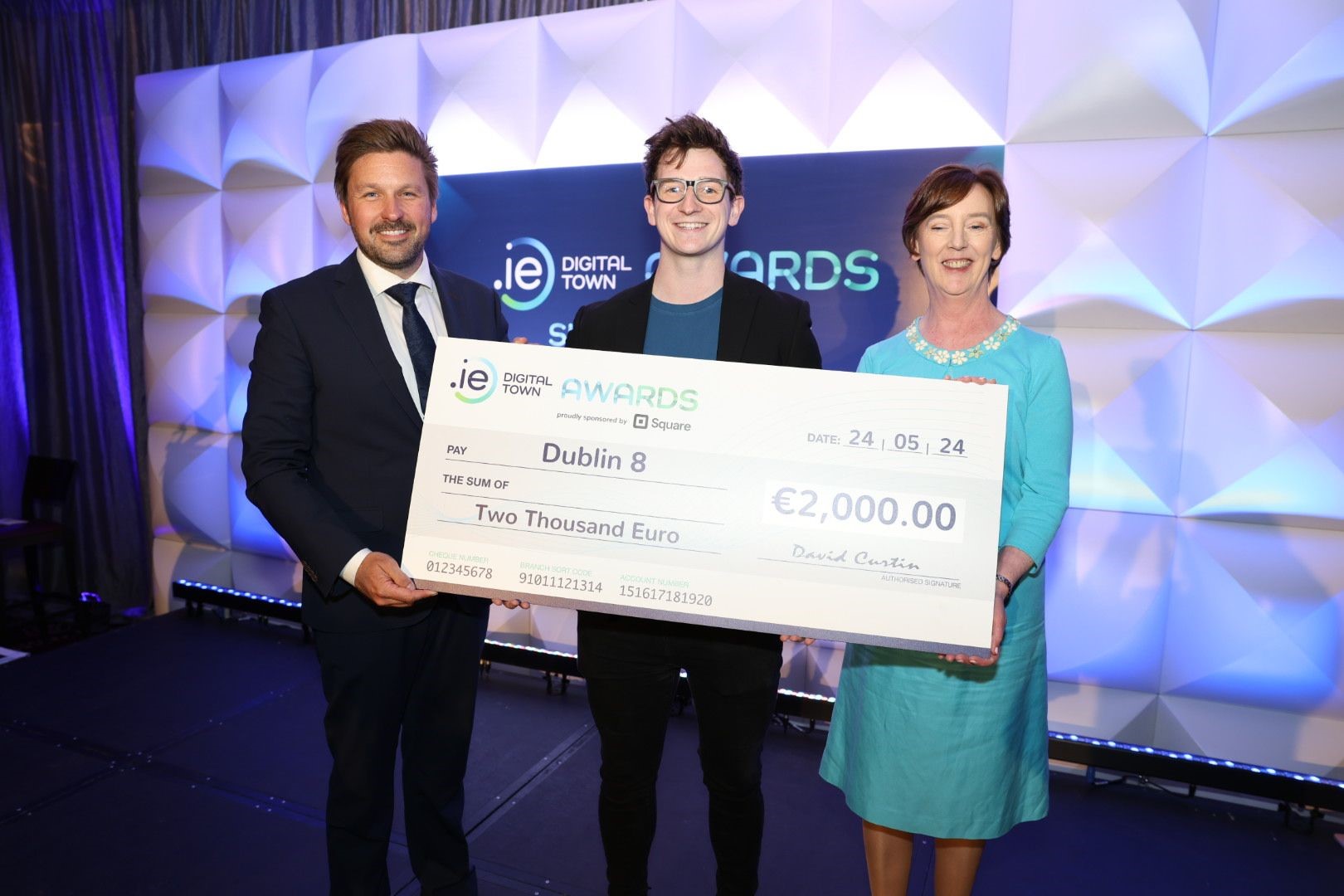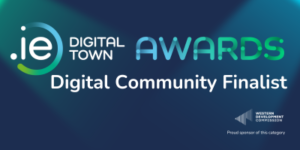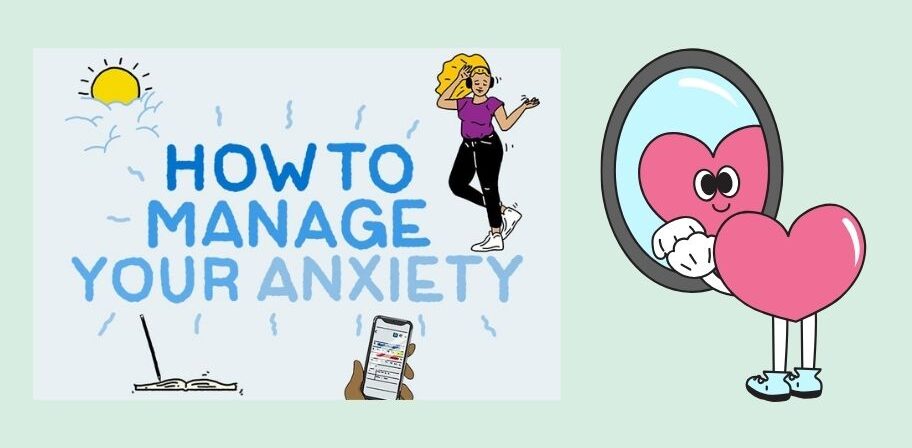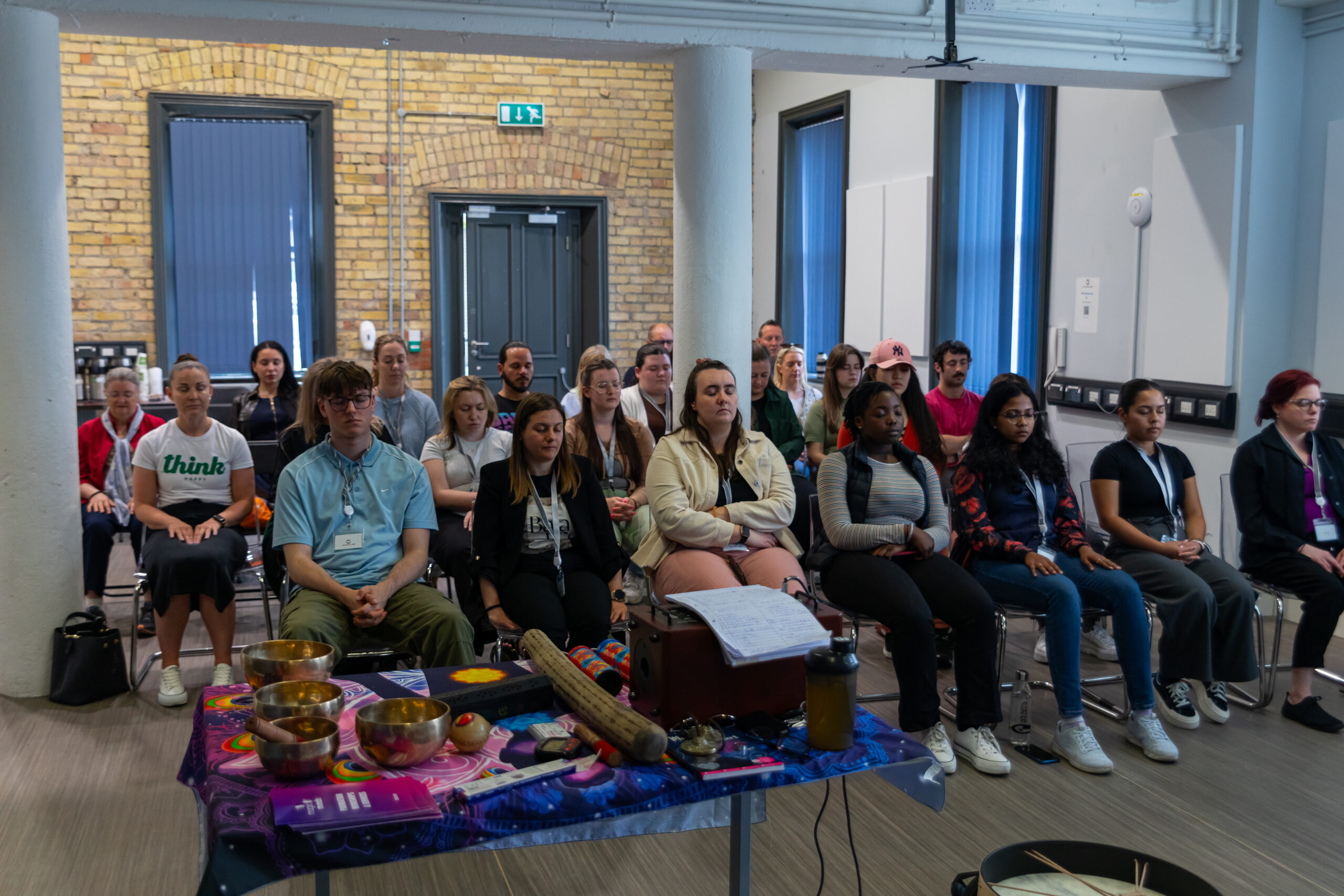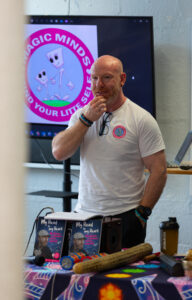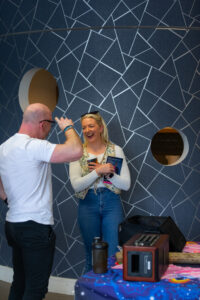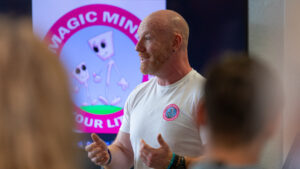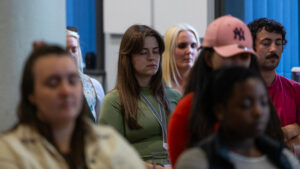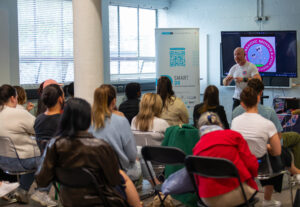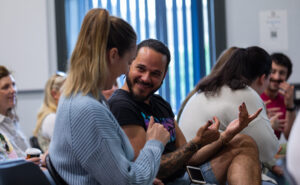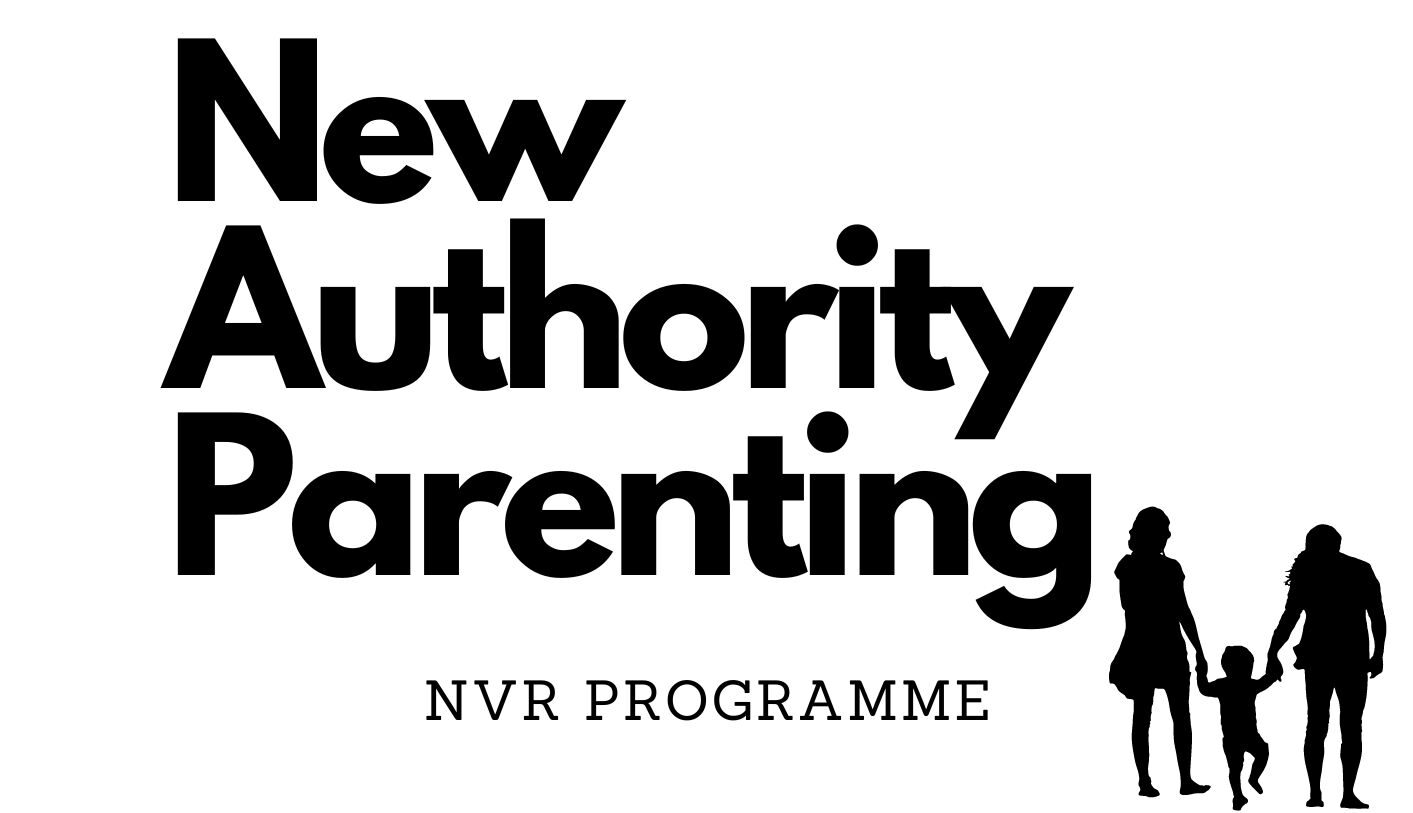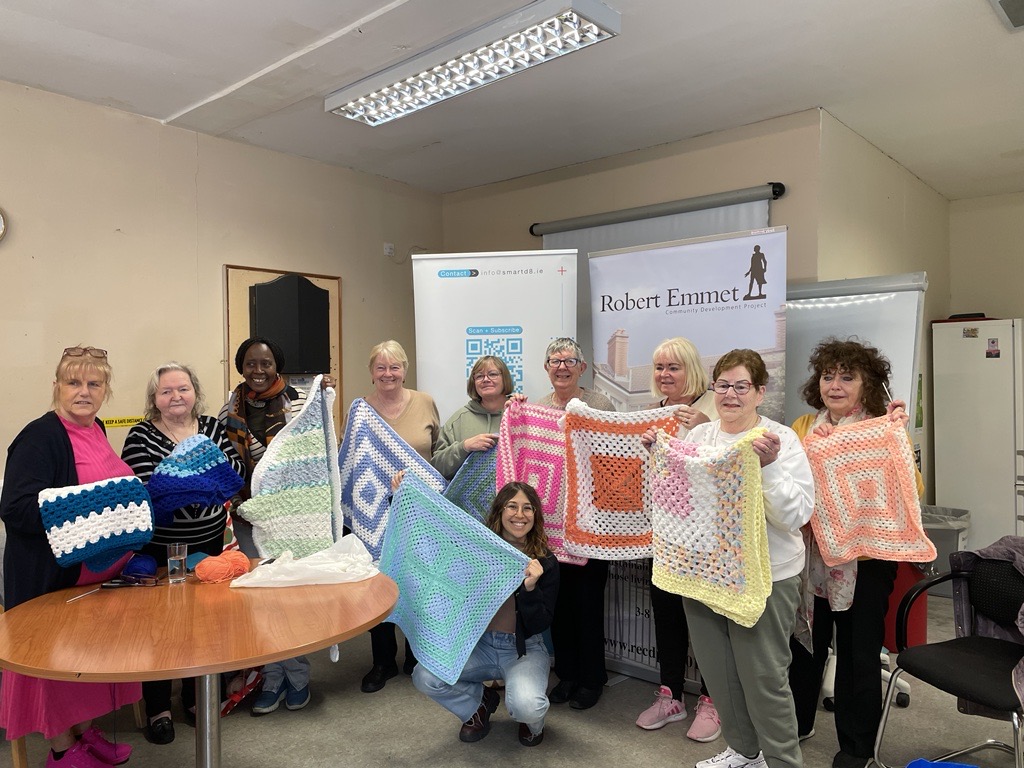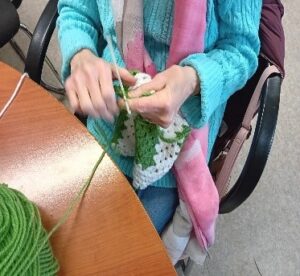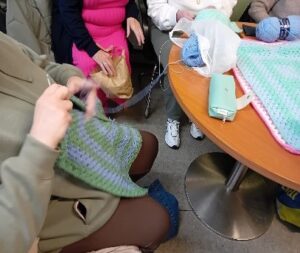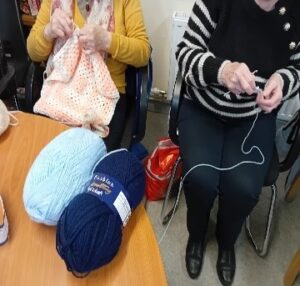Introduction
The collaboration between Smart D8 and the Mercer’s Institute for Successful Ageing (MISA) at St James’s Hospital in Dublin 8 was a remarkable initiative aimed at enhancing the wellbeing of older adults and hospital staff through projects supporting healthy living and creativity across the life course. This partnership, supported by Smart D8 funding, facilitated a series of creative projects and events over April and May 2024, emphasizing the intersection of health, community, and creativity.
Smart D8 funding supported three different projects developed and delivered by Creative Life MISA, a key pillar within the Mercer’s Institute for Successful Ageing at St. James’s. Creative Life MISA is dedicated to promoting mental and physical wellbeing through access to various arts practices.
1. The Artist In Residence Series & The Bealtaine Festival
One of the highlights of the collaboration between Smart D8 and Creative Life MISA was the Artist in Residence Series, featuring Emma McKeagney. Emma, an accomplished artist and writer, facilitated art workshops for older adults both in MISA’s clinical wards and in the Dublin 8 community through MISA’s social prescribing team. These workshops aimed to reach older adults living in isolation, allowing them and their families to join the art-making series. Her workshops, centered around the ancient festival of Bealtaine, provided participants with a unique opportunity to explore storytelling and art-making, fostering a sense of community and creativity.
Bealtaine, traditionally celebrated to mark the start of summer around May 1st, has been an important festival in Ireland for over a thousand years. It marked the time when cattle and livestock were brought to their summer pastures. Festivities and rituals were planned to protect the flocks, encourage growth in the harvest, look after people, and instill hope for the future. This included large bonfires, gatherings, and decorating the May Bush with flowers, ribbons, and other items. The oldest person in the household traditionally decorated the May Bush, which was left up from May 1st to 31st.
The series took place over eight Thursdays between April and May 2024, exploring themes of light and Bealtaine through storytelling and art-making. On average, 12 people attended the art workshop sessions over eight weeks for 90 minutes each. Participants created a May Bush in the MISA courtyard to protect the community and instill hope for the future. Visual art pieces and decorations made by participants from Kilmainham MISA Ward and older adults in the community included hanging ribbons and chimes, painted and written with wishes for the future, love for family members, and good summer weather.
These sessions culminated in a public showcase on May 23, 2024, where participants shared their artworks and experiences. The exhibition, held over one month in MISA, engaged many patients, their families, hospital staff, and the community. The initiatives reached a broad audience, with over 500 daily visitors to the Creative Life area during the public showcase and significant engagement on social media platforms.
All participants felt empowered after the showcase and hoped it would continue in Creative Life. They enjoyed the freedom of making art within a group each week and this was a first-time experience for all attendees to participate and create an art showcase.
2. The Documentary Screening
Smart D8 funding also contributed to refreshments at a documentary screening in MISA for a national Bealtaine festival event. The documentary, titled “The Art Of Living,” was created by Cork-based filmmaker Cormac O’Connor in 2021. It is a one-hour film celebrating the creative and civic lives of older people in Cork. The film showcases and celebrates a group of older citizens who, despite their advancing years, remain highly active in the community and the arts. It explores the idea that creativity, often perceived as the domain of the young, can be enriched by the maturity and sensibility that comes with older age. The documentary aimed to be life-affirming, interviewing older people who draw strength from their creativity. The screening was attended by 86 people.
3. The International Nurse’s Day
Smart D8 funding also supported Creative Life MISA projects such as International Nurses’ Day at St. James’s Hospital, during which Asha Ari, a renowned Ghanaian/Irish singer-songwriter, performed to support healthcare. Approximately 200 people attended the event. Her performances not only entertained but also connected healthcare assistants with their cultural roots, culminating in a moving rendition of the African Union song.
Feedback from Participants
Participants in the Creative Life MISA initiatives shared their experiences and the positive impact these projects had on their lives:
- “This series has been very helpful. It helped improve my self-esteem and confidence. In the beginning, I didn’t think I would be good at painting, but with Emma’s help and guidance, I found my way.”
- “I really enjoyed our times in Creative Life. The staff were so helpful and lovely to be with. Meeting up with people was therapeutic.”
- “Thanks to whoever organized this for all of us living with dementia. It was brilliant.”
- “This art course has been wonderful for both my wife and me. I strongly hope that other people are encouraged to participate in the Creative Life MISA – Smart D8 program. The people organizing this course have been fantastic.”
- “I think something like this is a real gift to someone like my little sister to get her out and doing something. It was good for me too.”
- “I never did any arty things before. I love it. I’m still no good at art, but now I know that doesn’t matter. It takes my mind off things when I am here, and it’s relaxing.”
- “I really enjoyed the course and would be interested in taking part in something like this again in MISA.”
Conclusion
Smart D8 funding contributed to the program at Creative Life, MISA, SJH. Numerous creative initiatives took place over two months, enabling older adults within MISA and the Dublin 8 community to access arts and culture at the Creative Life Hub. This collaboration allowed artists Emma McKeagney and Asha Ari to facilitate and support both older adults and hospital staff in connecting to their creative sides. Participant feedback suggested they had successful and positive experiences on both individual and community levels. This funding developed a wonderful collaboration working on shared goals between Creative Life, MISA, and Smart D8, with the potential to grow in the future through advanced planning and engagement to access arts, culture, and healthy aging at the intersection of the hospital and community.


